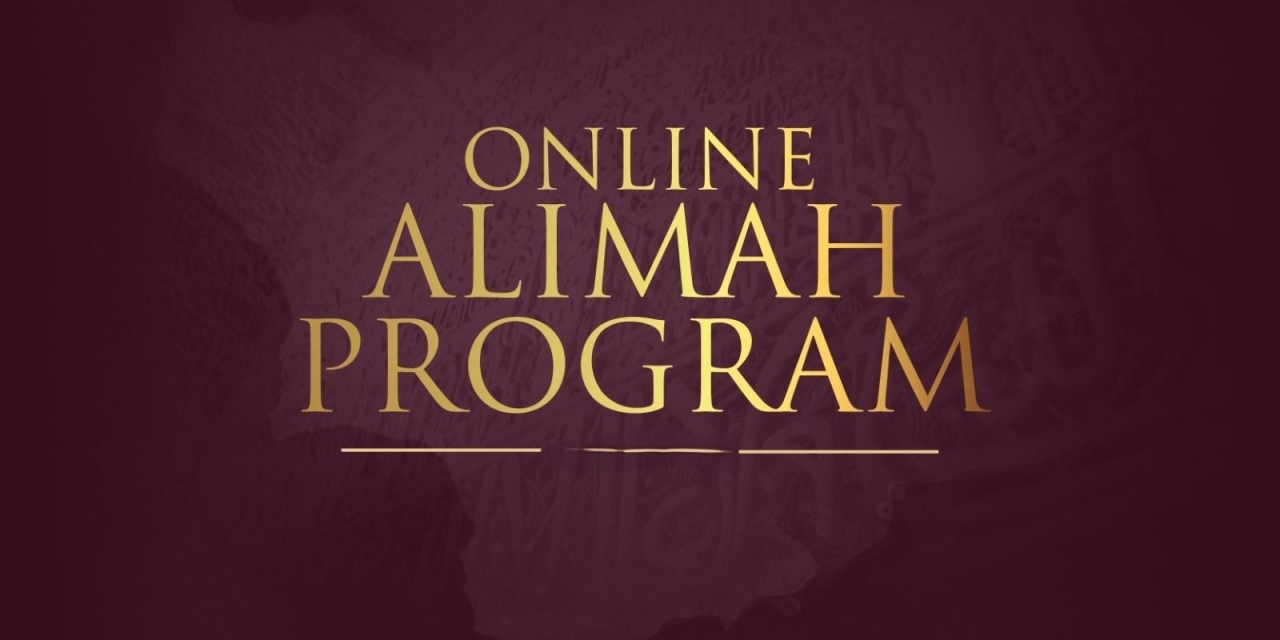How to Choose the Right Online Alim Alimah Course
The journey to deepen your understanding of Islamic knowledge is a noble pursuit, but finding the right online Alim or Alimah course can feel overwhelming. With countless options available, how do you decide which program fits your needs, goals, and lifestyle? This guide will walk you through everything you need to know to make an informed decision.
Table of Contents
Toggle1. Introduction
Choosing the right online Alim or Alimah course is much like selecting a compass for a long journey. The right choice will guide you in the right direction, ensuring your time, energy, and resources are well-spent. Let’s explore how you can confidently pick a course that aligns with your aspirations.
2. What Is an Alim or Alimah Course?
An Alim (for males) or Alimah (for females) course offers comprehensive training in Islamic sciences, including Quranic studies, Hadith, Fiqh, and more. These programs are designed to equip students with deep knowledge and the ability to teach or apply Islamic principles in everyday life.
3. Why Study Online?
With modern technology, studying online is now more accessible than ever. But why choose an online format?
- Convenience: Learn at your own pace and schedule.
- Diverse Options: Access courses offered by global institutions without relocating.
- Cost-Effective: Save on travel and accommodation costs.
Think of online courses as a bridge that connects you to learning opportunities worldwide, no matter where you are.
4. Identifying Your Goals
Before diving into course options, ask yourself: What do I want to achieve?
- Are you seeking personal growth or a professional qualification?
- Do you want to focus on a specific area like Quranic tafsir or Islamic jurisprudence?
Clarifying your goals is the first step in narrowing down your choices.
5. Accreditation and Credibility
Not all courses are created equal. Accreditation ensures the course meets educational standards and is recognized by Islamic authorities.
- Verify Credentials: Research the institution’s reputation and affiliations.
- Check Alumni Success: Look for alumni who have excelled after completing the program.
A credible program is like a trustworthy map—it points you in the right direction without leading you astray.
6. Course Curriculum and Structure
The curriculum is the heart of any educational program. Consider:
- Comprehensiveness: Does it cover all major Islamic sciences?
- Customization: Can you tailor the program to your interests?
A well-structured course ensures you build knowledge step-by-step, much like constructing a sturdy building from a solid foundation.
7. Flexibility and Accessibility
Life can be busy, and flexibility is key. Evaluate:
- Scheduling Options: Are there live sessions, or is it self-paced?
- Accessibility: Can you access materials from any device?
Choose a program that fits seamlessly into your lifestyle.
8. Cost and Affordability
Budget is an important factor. Look for:
- Transparent Pricing: Are all fees clearly stated?
- Scholarships or Discounts: Does the institution offer financial aid?
Think of affordability as planting seeds wisely—you want your investment to bear fruit without straining your resources.
9. Instructor Expertise
Great teachers make great students. Research the instructors’ qualifications:
- Educational Background: Do they have recognized degrees in Islamic studies?
- Teaching Experience: Have they successfully taught similar courses before?
An experienced instructor is like a skilled gardener who nurtures students to thrive.
10. Reviews and Testimonials
What do past students say? Reviews can provide valuable insights:
- Positive Experiences: Look for recurring praise in specific areas.
- Red Flags: Be cautious if multiple reviews highlight the same issues.
A good reputation often speaks louder than a glossy website.
11. Interactive Learning Tools
Engaging tools make learning enjoyable. Check for:
- Multimedia Content: Videos, quizzes, and interactive lessons.
- Practical Application: Assignments or projects to apply your knowledge.
Interactive tools keep the learning process dynamic and impactful.
12. Community and Support Systems
Studying online doesn’t have to be isolating. Consider:
- Peer Interaction: Does the program encourage group discussions?
- Mentorship Opportunities: Can you connect with mentors for guidance?
A supportive community can transform your journey into a collaborative and enriching experience.
13. Balancing Online Studies with Life
Balancing studies, work, and personal responsibilities is challenging. Tips include:
- Time Management: Allocate dedicated study hours.
- Set Realistic Goals: Focus on consistent progress rather than perfection.
Think of it as juggling—you can keep all balls in the air with the right rhythm.
14. Technical Requirements
Ensure you’re technically prepared:
- Internet Speed: Reliable connection for smooth sessions.
- Devices: Laptop or tablet with updated software.
Preparing your tools beforehand is like sharpening your pencils before an exam.
15. Final Decision-Making Tips
Finally, compile all your findings:
- Compare Options: Create a pros-and-cons list for each program.
- Trust Your Instincts: Choose the course that feels right for you.
Remember, the best choice is the one that aligns with your goals and values.
16. Conclusion
How to Choose the Right Online Alim Alimah Course: Embarking on the journey of Islamic education through an online Alim or Alimah course is a rewarding decision. By carefully considering the factors above, you can find a program that enriches your knowledge and helps you achieve your aspirations. Trust the process, and let your quest for knowledge be your guide.
17. FAQs
1. What is the difference between an Alim and an Alimah course?
The primary difference lies in the target audience: Alim courses are designed for men, while Alimah courses cater to women. The content may also reflect gender-specific topics.
2. How long does an online Alim Alimah course take?
Course durations vary widely, ranging from a few months for foundational programs to several years for comprehensive ones.
3. Can I study an Alim or Alimah course part-time?
Yes, many online programs offer flexible, part-time options to accommodate different schedules.
4. Are online Alim Alimah courses recognized globally?
Recognition depends on the institution’s accreditation. Research the course’s credentials to ensure its global validity.
5. What qualifications do I need to enroll in an Alim or Alimah course?
Entry requirements vary, but most programs welcome beginners with a basic understanding of Islamic principles. Advanced courses may require prior knowledge.
Half Week Free Trial Classes
Upon completion of your course, you will receive a complimentary certificate. What are you waiting for, then?
Enroll in our class now for a free trial.
Read More: Explore the Alim Alimah Course A Path to Islamic Scholarship



